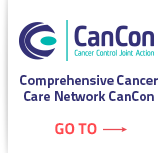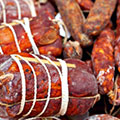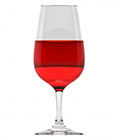Articles
27. 10. 2015 Cancer in the older population of the Czech Republic
Population ageing has become a challenge to cancer care in developed countries. Particularities of the older population must be taken into account when considering cancer treatment. However, there is a lack of consensus on guidelines for this population due to the underrepresentation of older patients in clinical trials.
15. 1. 2014 Personalised invitations of Czech citizens to cancer screening programmes
In January 2014, a project of personalised invitations for cancer screening programmes was launched in the Czech Republic. In particular, citizens are invited to participate in colorectal cancer screening (men and women), as well as breast cancer screening and cervical cancer screening (women). Personalised invitations are aimed at citizens who have not participated in cancer screening programmes in the long term, and therefore are at a higher risk of developing cancer. The project is expected to increase participation rates in Czech cancer screening programmes.
» Archive
Recommendations for Cancer Prevention
These recommendations are based on the findings of the WCRF/AICR report Food, Nutrition, Physical Activity, and the Prevention of Cancer: a Global Perspective [1].
Cancer screening programmesScreening is a strategy used in a population to detect a disease in individuals without signs or symptoms of that disease. The intention of screening is to identify disease in a community early, thus enabling earlier intervention and management in the hope to reduce morbidity and mortality from a disease. However, not all cancer types are suitable for screening; a “suitable” cancer type should meet the following criteria:
Main benefits of screening tests involve significant improvements in disease prognosis, together with the prospect of less radical (mostly also less expensive) treatment which, in fact, is usually much more effective. The following screening programmes have proved to be highly effective: |
|
 |
Breast Cancer Screening Programme in the Czech Republic
|
 |
Cervical Cancer Screening Programme in the Czech Republic
|
 |
Colorectal Cancer Screening Programme in the Czech Republic
|
References
- World Cancer Research Fund / American Institute for Cancer Research. Food, Nutrition, Physical Activity, and the Prevention of Cancer: a Global Perspective. Washington DC: AICR, 2007. Available at: http://www.dietandcancerreport.org/cancer_resource_center/downloads/Second_Expert_Report_full.pdf













